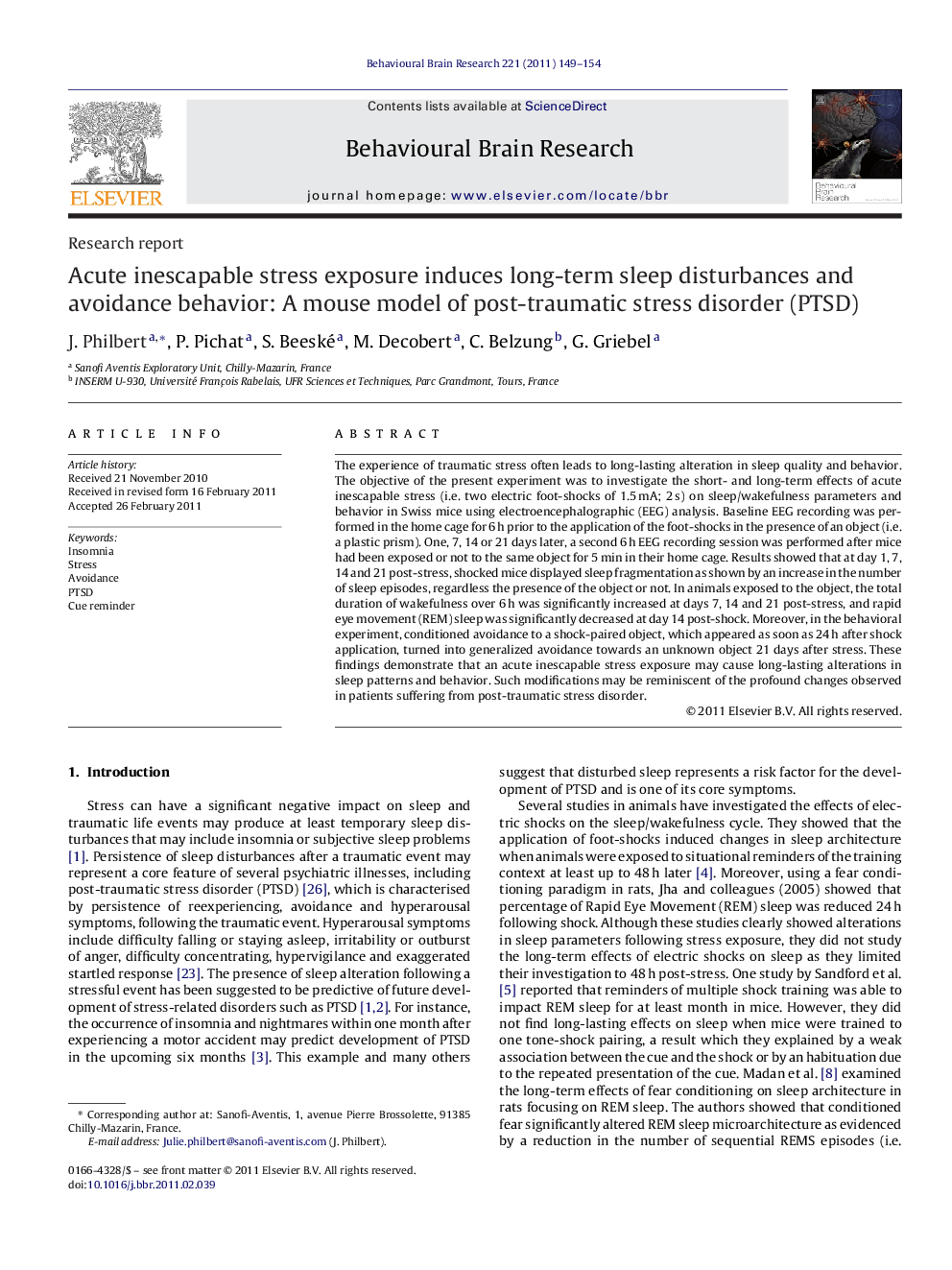| کد مقاله | کد نشریه | سال انتشار | مقاله انگلیسی | نسخه تمام متن |
|---|---|---|---|---|
| 4313686 | 1290006 | 2011 | 6 صفحه PDF | دانلود رایگان |

The experience of traumatic stress often leads to long-lasting alteration in sleep quality and behavior. The objective of the present experiment was to investigate the short- and long-term effects of acute inescapable stress (i.e. two electric foot-shocks of 1.5 mA; 2 s) on sleep/wakefulness parameters and behavior in Swiss mice using electroencephalographic (EEG) analysis. Baseline EEG recording was performed in the home cage for 6 h prior to the application of the foot-shocks in the presence of an object (i.e. a plastic prism). One, 7, 14 or 21 days later, a second 6 h EEG recording session was performed after mice had been exposed or not to the same object for 5 min in their home cage. Results showed that at day 1, 7, 14 and 21 post-stress, shocked mice displayed sleep fragmentation as shown by an increase in the number of sleep episodes, regardless the presence of the object or not. In animals exposed to the object, the total duration of wakefulness over 6 h was significantly increased at days 7, 14 and 21 post-stress, and rapid eye movement (REM) sleep was significantly decreased at day 14 post-shock. Moreover, in the behavioral experiment, conditioned avoidance to a shock-paired object, which appeared as soon as 24 h after shock application, turned into generalized avoidance towards an unknown object 21 days after stress. These findings demonstrate that an acute inescapable stress exposure may cause long-lasting alterations in sleep patterns and behavior. Such modifications may be reminiscent of the profound changes observed in patients suffering from post-traumatic stress disorder.
► The objective of the present experiment was to investigate the short- and long-term effects of acute inescapable stress on sleep/wakefulness parameters in mice using EEG analyses.
► Results showed that at day 1, 7, 14 and 21 post-stress, shocked mice displayed a greater sleep fragmentation as shown by an increase in the number of sleep episodes.
► These findings demonstrate for the first time that an acute inescapable stress exposure may cause long-lasting alterations in sleep patterns.
► Such modifications may be reminiscent of the profound changes in sleep quality observed in patients suffering from post-traumatic stress disorder (PTSD).
► This model may be useful for the understanding of the mechanisms involved in PTSD.
Journal: Behavioural Brain Research - Volume 221, Issue 1, 1 August 2011, Pages 149–154